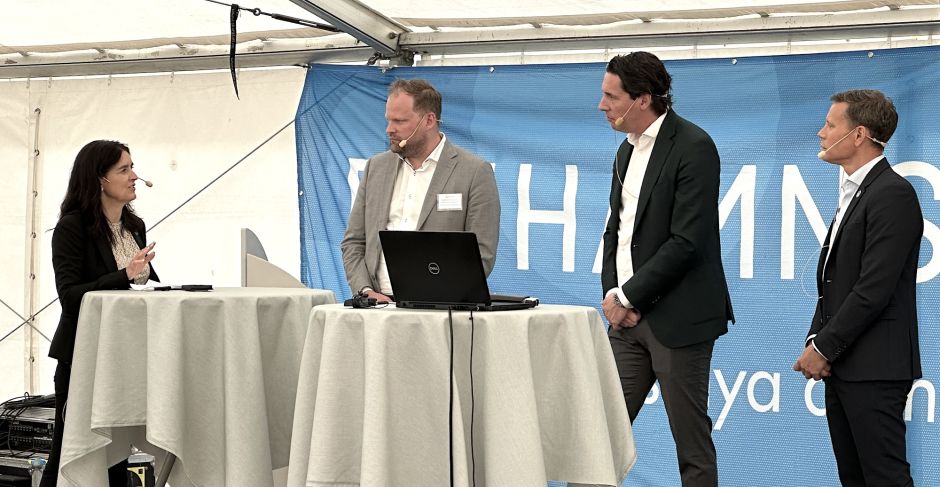Is it possible to get all countries to follow IMO's stricter climate targets?

Yes, answered Roel Hoenders, head of climate action at IMO, when he was asked the question by Lighthouse director Åsa Burman during a panel discussion at Frihamnsdagarna in Gothenburg. In two years, all countries will have signed a binding package of measures that will make shipping fossil-free by 2050.
“Technical measures of will be supplemented with economic ones that benefit the shipowners who are at the forefront and will reduce the price gap to the more expensive renewable fuels. Everything should be in place by 2025, said Roel Hoenders.
“I really hope it works out. Without binding agreements, we will never make it. It is not enough to say that we aim to reach net-zero by 2050”, said Nick Lurkin, climate officer at the Royal Association of Netherlands’ Shipowners.
The panel discussion took place during Frihamnsdagarna at the Sustainable Maritime Transport Forum – a seminar day organized by the Embassy of the Netherlands. Åsa Burman led two of the seminars – one on how the EU's climate package affects shipping and one on the international maritime organization IMO's efforts in the climate area. These came into the spotlight in July when the IMO's previous goal of having emissions cut by half by 2050 was tightened to net-zero emissions "around" 2050.
Were there any specific countries that pushed for change and others that was reluctant? Åsa Burman wondered.
“The decision was taken by consensus of all 175 member states. As in all international negotiations, there are always those who are more ambitious and those who are less so. The IMO is part of the UN and there is of course a large interest gap between developed countries and less developed and those on the periphery”, said Roel Hoenders.
When asked if it was the EU's Fit for 55 package that drove the change in the IMO, Hoenders replied that the climate is a global issue.
“It is not only the EU that is ambitious. Many other countries are. The current administration in the United States, many smaller countries in the Pacific region... The United Arab Emirates, which hosts the UN climate conference COP 28 later, is becoming more and more involved.”
The transport costs then? How much more expensive will it be when new regulations and policies come into force? Not very much more expensive, at least not in the longer term, believed Steven Jan van Hengel, Senior Business Development Manager, Port of Rotterdam. Roel Hoenders agreed but at the same time said that we should be prepared to meet difficulties.
"Many developing countries that depend on their raw material exports are worried that prices will rise and that competition will be distorted so that trade routes change. It is something that we at IMO have to keep an eye on in order to keep all countries on board."
-
 NextWave – en podd som ska locka unga
NextWave – en podd som ska locka unga -
 Ny studie: Eldrivna pendelbåtar kan effektivisera Stockholms kollektivtrafik
Ny studie: Eldrivna pendelbåtar kan effektivisera Stockholms kollektivtrafik -
 Sjöfartens utsläpp ökar
Sjöfartens utsläpp ökar -
 Sociala relationer påverkar val av bränsle
Sociala relationer påverkar val av bränsle -
 Sjöfartens omställning kräver ”mjukare” påtryckningar
Sjöfartens omställning kräver ”mjukare” påtryckningar -
 Hon hade avtalad tid med Kapten ynkrygg
Hon hade avtalad tid med Kapten ynkrygg -
 Lighthouse omvärldsanalys 2025 – osäkerhet och tullar präglar sjöfarten
Lighthouse omvärldsanalys 2025 – osäkerhet och tullar präglar sjöfarten -
 Se seminariet Shipping in the Marine Environment
Se seminariet Shipping in the Marine Environment -
 Vad betyder egentligen de 90 procenten?
Vad betyder egentligen de 90 procenten? -
 Hålla där...
Hålla där...

